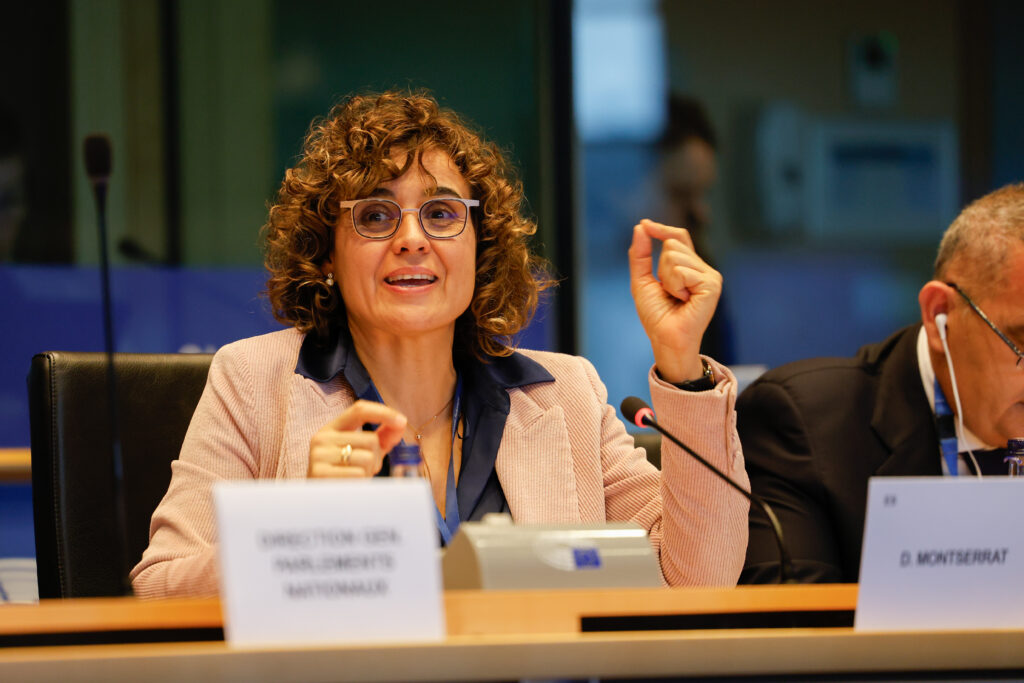Brussels – The European People’s Party (EPP) is the “anchor of stability” in the EU. Word of its leader-master, the Bavarian Manfred Weber, one of the most prominent profiles in EU politics. Introducing the upcoming Congress in Valencia, the leader of the Christian Democrats reiterated that his party’s enemies are populist and authoritarian leaders who do not defend European interests, although he does not then disdain their votes in Strasbourg.
“The main challenge for us is not to compete at the political centre,” Manfred Weber said this morning (April 9) during a press conference at the EPP headquarters, not far from the EU Parliament, but to “compete against the populists” and push back what he calls “the authoritarian wave” that is swelling on the Old Continent.
The 52-year-old Bavarian (at the same time chairman of the pan-European party and the EPP parliamentary group in Strasbourg) explained that “in Poland, Hungary, Italy, Germany, and many other countries we fight every day against autocrats and populists to defend our Europe,” holding fast to the three cardinal principles set out by the Christian Democrats during last June’s European election campaign: “We work only with those who are pro-EU, pro-Ukraine and respectful of the rule of law.”

In fact, the EPP’s numerous collaborations with the radical right-wingers in the Europarliament—especially with the Patriots (PfE) and the Sovereignists (ESN)—in what has been dubbed the “Venezuela Majority” seem to indicate a certain willingness of Weber to interact even with those who do not meet those three criteria. Several People’s delegations have been complaining about this twist for some time, starting with the Polish delegation (the second largest in the group, with 23 out of 188 total deputies), which denounces the collapse of the sanitary cordon against the far right in the House.
It is also curious to see Italy included in the list of member states where the Populars are supposedly fighting against populist and authoritarian forces. In government in Rome is the Lega of Matteo Salvini, who shares the Patriots’ benches in Strasbourg with Viktor Orbán and Marine Le Pen. Asked whether the newly taunted leaders (including precisely the Hungarian and the Frenchwoman) include the Italian vice-premier, the EPP chieftain replies evasively that “there are many populist leaders in Europe,” hinting at a sneer.
The problem, the Bavarian leader reasons, is that “the populists are selling out our interests,” for example, on the issue of the tariffs imposed by Donald Trump. On the contrary, Premier Giorgia Meloni and her other deputy, Antonio Tajani (a member of the EPP), “are working from the perspective of defending Europe’s interests” by attempting to keep the dialogue with the White House open but without opposing the EU tariff measures, with which Brussels demonstrates “its willingness to act without, however, initiating any kind of escalation.”
On the crucial issue of European defence, Weber “completely” supports Ursula von der Leyen’s ReArm Europe plan. But he laments that “we are still not integrated in this area; we do not defend each other as in a bloc.” In an unusual convergence with the grievances of Italy’s PD secretary Elly Schlein, the king of the European Populars warns that “we are missing the chance to create a true European defence pillar.”

Today’s event in the PPE house was also dedicated to the presentation of the party congress, scheduled for April 29 in Valencia, where there will be no other candidate besides Weber to hold the helm of the Christian Democrats. In a tragic irony, the communidad autonoma led by the Partido Popular (PP) was the scene of a devastating flood last fall: that episode had triggered heavy friction in Spanish politics, reverberated even at the European level with crossfire from Populars, Conservatives and Socialists over the appointed commissioners Teresa Ribera and Raffaele Fitto.
Today, alongside Weber, was Alberto Núñez Feijóo, president of the PP. The two announced the candidacy of Dolors Montserrat, currently an MEP and vice president of the EPP group in the Europarliament, for the position of secretary general of the European Populars, also in Valencia. Feijóo said he was “proud that the PP can provide the number two within the EPP” as the third-largest delegation (22 MEPs) and informed that it will be up to the Spanish delegation to replace her as group vice-president.
Montserrat will be tasked with helping develop the party’s new strategy for the next three years. Secretary-General will have a “much more political” role, the Bavarian assured: a change that is part of his plan to “politicise the EU,” making it less bureaucratic and more accessible to citizens. For this, he noted, “we need a narrative for the future,” capable of providing “direction” to voters.
English version by the Translation Service of Withub






